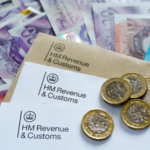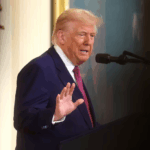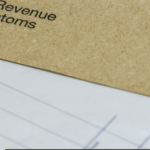Britain’s benchmark borrowing costs have surged to their highest level since the financial crisis, as inflation concerns and investor uncertainty continue to weigh heavily on the economy.
The yield on the UK’s 10-year gilt, a key indicator of public borrowing costs, climbed to 4.82% on Wednesday, surpassing the peaks seen following former Prime Minister Liz Truss’s controversial mini-budget in 2022. Meanwhile, the yield on the 30-year gilt rose to a fresh 27-year high of 5.358% on Tuesday, marking a significant spike in bond yields as prices fall. Bond yields typically rise when investor demand drops, underscoring the ongoing sell-off in government debt.
The increase in yields has also put pressure on the British pound, which weakened by 1% against the dollar, slipping to $1.23. The pound has underperformed many of its global counterparts, signalling continued skepticism in the markets regarding the UK’s fiscal sustainability.
The rise in UK borrowing costs comes as the US dollar remains strong, bolstered by expectations of corporate tax cuts and regulatory changes under the new US administration. The dollar index has risen by nearly 7% over the past year, further exacerbating the strain on the pound.
Several factors have contributed to the UK’s vulnerability to rising gilt yields, including its reliance on energy imports, which has amplified commodity price shocks. In addition, investors are seeking higher returns in private debt markets, forcing the UK government to offer higher yields on its bonds. The government’s increased borrowing in its October budget, combined with the Bank of England’s gradual interest rate cuts, has also weighed on bond prices.
Simon French, chief economist at Panmure Liberum, pointed out that the UK’s long bond yields have become increasingly detached from their US counterparts since the market turmoil following the 2022 mini-budget.
The surge in borrowing costs has significant implications for the UK government’s finances, increasing debt servicing costs and reducing the chancellor’s room for spending. Capital Economics estimates that £8.9 billion of the £9.9 billion fiscal buffer set aside by Chancellor Rachel Reeves has already been depleted. As a result, further tax hikes or public spending cuts are likely.
With rising borrowing costs, the government faces a tough decision: reduce spending or raise taxes. Although Chancellor Reeves has promised no tax increases at her spring statement in March, continued high borrowing costs may force her to reconsider, particularly if the gilt yields remain elevated.
The UK’s bond market has underperformed globally, mirroring concerns in the US and other European markets. With ongoing inflationary pressures, analysts warn that Britain’s fiscal outlook remains uncertain, and political and financial challenges may persist in the months ahead.









